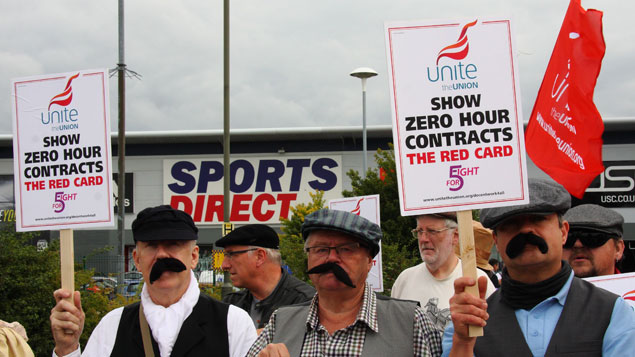Acas has published its response to the Matthew Taylor review on modern employment practices.
The Acas Council response looked at calls to the Acas helpline, which revealed confusion and uncertainty around employment status and rights for those involved in non-standard types of working such as zero hours contracts, agency working, self-employment and ‘gig’ working.
Acas Chair, Sir Brendan Barber, said:
“Our helpline analysis revealed that many callers were in a zero hours, agency or self-employed arrangement out of necessity rather than by choice with some people feeling taken advantage of and unfairly excluded from employment rights.
“Many people have also called us for advice on how to challenge their employment status following recent high profile tribunal decisions that certain individuals should be defined as workers and not as self-employed.
“These types of working arrangements can offer flexibility to individuals and employers. But it is clear that there can be a lot of confusion around employment rights and feelings of insecurity within these non-traditional types of working.”
Acas’ analysis of helpline calls found a wide range of issues relating to non-standard working arrangements, such as:
- Workers who fell out of favour with their manager were not sure if they had been dismissed or simply left out of the rota temporarily – this had a knock on effect on their income security as the Job Centre were unable to help due to ambiguity around their employment situation;
- Offers of work that had dried up after an employer was made aware of a change in circumstances, such as a worker being pregnant or being diagnosed with a serious illness;
- Uncertainty around working time such as being paid whilst travelling and pay entitlements whilst on call. People working in the care sector in particular were not clear about entitlements to pay during breaks and travelling between assignments; and
- Some helpline callers that worked in construction, hairdressing or cleaning were told that they needed to become self-employed so that their employer could avoid the costs of sick, holiday or maternity pay.
Acas has also published a new discussion paper today on non-standard or ‘atypical’ forms of work. The paper was prompted by evidence that these types of working arrangements are on the rise and identifies areas where good practice can be encouraged and improved.
Sir Brendan added:
“Whilst there’s existing guidance available to help people understand their rights and obligations, our helpline calls reveal that there’s more than can be done here.
“Clear and accessible guidance that allows people to make an informed choice before entering into these types of working arrangements would greatly help the situation. There is also a need to further promote good management practices where these contracts are used.
“Acas welcomes the Taylor Review and we are happy to work with the Government to help improve transparency and good practice in these increasingly typical types of working arrangements.”
The discussion paper, Ain’t that typical? Everyday challenges for an atypical workforce, further reveals that the practice of ‘zeroing down’ workers’ hours is used in some workplaces to discourage staff from raising concerns or asserting rights.
It similarly found that uncertainty around employment status and a sense of insecurity can result in a lack of confidence in asserting rights and voicing concerns at work. This can in turn affect the ‘psychological contract’ between employers and the people who work for them, contributing to feelings of unfairness by workers about the way they are being treated.
To see the full discussion paper, please see: www.acas.org.uk/policydiscussion





















